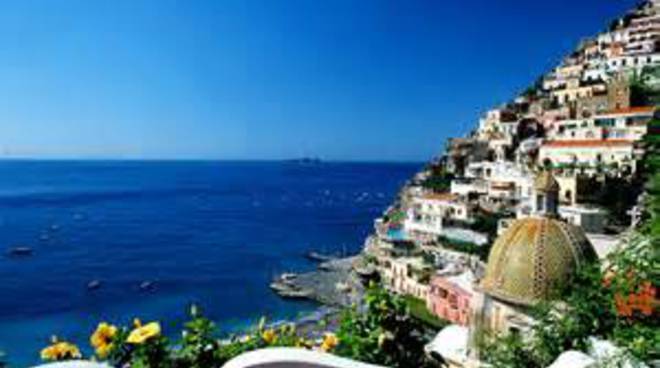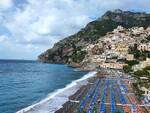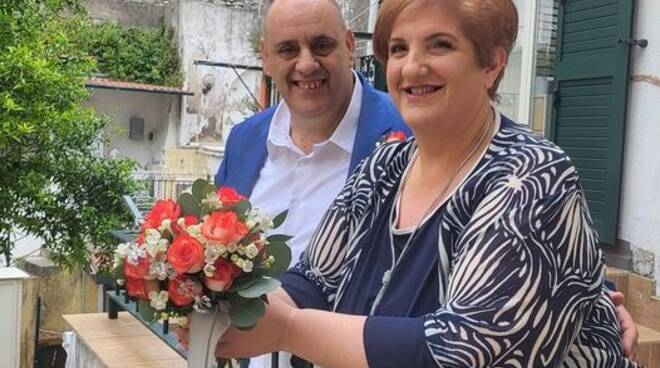Discovering Positano. La cultura della Positano odierna. VIDEO
Più informazioni su

Oggi, 28 dicembre, Discovering rivela finalmente che cos’è Positano oggi. Potremmo darle tre aggettivi.
Positano è capitalistica: in realtà lo è sempre stata, dai tempi in cui la chiamavano la “Montagna d’oro” al 2015, solo che si è cambiato il settore, perché oggi “si vive” con il turismo. E, possiamo ben dirlo, se non ci fosse il terziario non esisterebbe l’appellativo di perla della Costiera Amalfitana e non avrebbe avuto senso di esistere neanche questa rubrica. Positano, famosa per la sua notorietà novecentesca, è diventata una meta ideale per ogni turista, come il Vaticano per i cristiani cattolici e come la Mecca per i musulmani: almeno una volta nella vita la si deve visitare e la si deve vedere per le sue bellezze paesaggistiche.
Positano è gastronomica: mettersi ai fornelli è la moda del momento, ma per i Positanesi è una tradizione, è una storia che comincia dagli ulivi e dalle viti piantate dai Romani e dai Bizantini, passa attraverso la cucina napoletana di età moderna e termina con l’incontro con altre gastronomie, al punto da far diventare la nostra gastronomia internazionale.
Positano è culturale: non c’è angolo di Positano dove non risieda quella “res” che gli antropologi ancora non sanno definire, appunto, la cultura. Essa è il tutto, è la letteratura, la storia, l’architettura, l’archeologia, l’arte, la musica, la danza, ecc. Quello che si dovrebbe spiegare ad un turista è questo. In una visione poetica della vita, Positano era negli occhi di quel greco che proveniente da Troia acuì il suo ingegno quando gli apparvero dinanzi le Sirene, era nella mente di quell’architetto romano che decise di far portare in un’insenatura selvaggia delle colonne per edificarvi una villa ed era nelle preghiere di quei profughi pestani che dopo aver visto la loro città distrutta invocarono Dio nella speranza di far rifiorire una nuova Poseidonia. Positano era nelle imprecazioni saracene che – sembra strano – le sentiamo ancora oggi attraverso la visione delle torri di guardia, era nelle orecchie di quel pilota di una ben nota nave che udì la celeste voce “Posa Posa”, era nella disperazione di quelle madri che videro i loro figli sepolti dalla peste. Positano era nel movimento rotatorio della pisside nautica del nostro Flavio, era nelle gambe di quel contadino che non reggevano più il peso della fatica nei campi, era nello sfregamento delle mani di quel commerciante che accumulava, accumulava ed accumulava … Positano era in quel 15 agosto 1783 quando la Madonna divenne la Regina di Positano, la Madre di tutti noi, era nella salivazione di quel brigante di fine ‘800 che assaporava avidamente il suo bottino, era nel coraggio di quel giovincello che si batteva sul fronte nella Grande Guerra e adesso lo leggiamo lì su una lapide del campanile. Positano era nei nostri piccoli ma grandi Faraglioni distrutti da quel sommergibile che sbagliò la mira, era nella penna del premio Nobel americano John Steinbeck che, nonostante fosse un cronista di guerra, ci sponsorizzò in America ed era nello spirito libero e danzante del grande Rudolf. Positano siamo noi oggi …
Desidero ringraziare vivamente la carissima Rosalba De Lucia, membro dell’Associazione Positano Arte e Cultura e tutta la redazione di Positanonews, in particolare il direttore, Michele Cinque, che mi hanno dato la possibilità di divulgare alcuni momenti della storia di Positano non solo attraverso la composizione degli articoli della rubrica, ma anche tramite la proiezione delle immagini e dei video con la fruibilità del canale Youtube Positanonews tv. Auguro a tutti buone feste ed un felice 2016!
Il video “Discovering Positano” è sul canale Youtube Positanonews tv. Ricordo che sulla pagina facebook della Pro Loco Positano (Sezione “Post delle persone che visitano la Pagina”), potete ripercorrere le tappe fondamentali della rubrica Discovering Positano attraverso la lettura degli articoli e la visione dei video, pubblicati sia su Positanonews, sia sul sito dell’Associazione Positano Arte e Cultura (www.positanoartecultura.org).
Gennaro Cuccaro, Associazione Positano Arte e Cultura.
Today, on December 28, Discovering finally reveals what Positano is today. We could give her three adjectives.
Positano is capitalist: in fact it has always been, since the ages when it was called the “Gold Mountain” to 2015, only that it has changed the industry, because today “you live” with tourism. And, we can say that again, if there was the service sector would not exist the title the Pearl of the Amalfi Coast and would have no reason to exist even under this heading. Positano, famous for its notoriety twentieth century, has become an ideal destination for every tourist, like the Vatican for Catholic Christians and as Mecca for Muslims: at least once in your life you must visit and you must see it for its beautiful scenery.
Positano is gastronomic: cooking is the current fashion, but for Positano is a tradition, it’s a story that begins by olive trees and vines planted by the Romans and the Byzantines, through the Neapolitan cuisine of the modern age and ends with meeting with other gastronomies, enough to make our international gastronomy.
Positano is cultural: there is no corner of Positano where resides the “res” that the anthropologists still do not know how to define precisely the culture. It is the whole, is literature, history, architecture, archeology, art, music, dance, etc. What you should explain to a tourist is this. In a poetic vision of life, Positano was in the eyes of that greek coming from Troy sharpened his wits when he saw the Sirens, it was in the mind of that architect Roman that decided to bring in a creek wild columns for building a villa and it was in the prayers of those refugees of Paestum that after seeing their city destroyed invoked God hoping to revive a new Poseidonia. Positano was in Saracen curses – seems strange – we feel today through the vision of the watchtowers, it was in the ears of the pilot of a well-known ship that heard the heavenly voice “Posa Posa”, it was in the despair of those mothers that saw their children buried by the plague. Positano was in the rotation of the compass of our Flavio, it was in the legs of the peasant who is not longer support the weight of toil in the fields, it was in the rubbing of the hands of the trader who accumulated, accumulated and accumulated … Positano was on that August 15 1783 when Madonna became the Queen of Positano, the Mother of us all, it was in the salivation of the robber of end ‘800 that greedily savored his loot, it was the courage of the youngster who fought on the front in the Great War and now we read him on a tombstone of the bell tower. Positano was in our small but great Faraglioni destroyed by the submarine that missed the target, was in the pen of the American Nobel laureate John Steinbeck that, despite being a war reporter, sponsored us in America and it was the free and dancing spirit of the great Rudolf. Positano are us today …
I want to thank the dear Rosalba De Lucia, member of the Association Positano Arte e Cultura and the team of Positanonews particularly the director, Michele Cinque, who gave me the opportunity to spread some moments of the history of Positano not only by the composition of the articles of the section, but also through the projection of images and videos with the availability of the Youtube channel Positanonews tv.
I wish you merry holidays and happy 2016!
Video “Discovering Positano” is on Youtube channel Positanonews tv. I remember that on the facebook page of Pro Loco Positano (Section “Post of the people who visit the page”), you can retrace the milestones of section Discovering Positano through reading articles and watching videos, published both on Positanonews, both on the website of Positano Art and Culture (www.positanoartecultura.org).
Gennaro Cuccaro, Association Positano Arte e Cultura.








